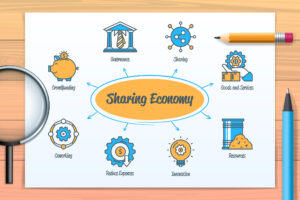Edward Caban had the foresight to place a dashboard camera in his vehicle while driving for Uber, after concerns about his safety arose. On an unexpected day in South Orange County, he faced a violent confrontation when Benjamin Golden, a known executive from Taco Bell, assaulted him. The incident escalated to the point where Caban had to use pepper spray in self-defense. The footage capturing the intense encounter was later uploaded to YouTube by Caban.
However, the predicament here isn’t just the assault. Caban, like numerous other workers in the sharing economy, doesn’t have the privilege to claim workers’ compensation benefits. This is due to the nature of their association with platforms like Uber, Homejoy, and TaskRabbit. Such companies operate without the mandate to offer the usual employee protections which often encompass paid leave, health benefits, and overtime compensations.
Being an independent contractor might sound enticing with its flexibility: choosing when to work, selecting clients, and overall, having more control. Yet, there’s a downside. When an injury or mishap occurs on the job, these contractors are left to fend for themselves. Without the backing of a corporate safety net, they bear the brunt of mishaps, often resorting to personal insurances for coverage.
It’s worth noting that while many taxi drivers across the US function as independent contractors, a significant number in major cities like Washington, San Francisco, Chicago, and Colorado are shielded by workers’ compensation. Even though ride-sharing apps may reduce certain risks, like handling physical money, they don’t entirely eliminate threats, especially for those who work solo during late hours in potentially risky urban locales.
Adapting to a New Economic Landscape
This evolving business landscape and its associated challenges have led to growing unrest. Workers, feeling the pinch of this gap in worker rights, are resorting to legal avenues. They aim to rectify the situation through misclassification lawsuits, trying to establish that they should be recognized as employees rather than independent contractors. If successful, this would compel platforms to confer the standard employment benefits to their workforce. But, securing such a legal victory is not simple; it can be a prolonged endeavor, potentially stretching out for years.
If you or someone you know is grappling with such issues in the sharing economy, it’s essential to understand your rights and the nuances of the industry. At PLBH, our dedicated team can guide you through these complexities. Don’t navigate this landscape alone; call us at (800) 435-7542 for assistance.

